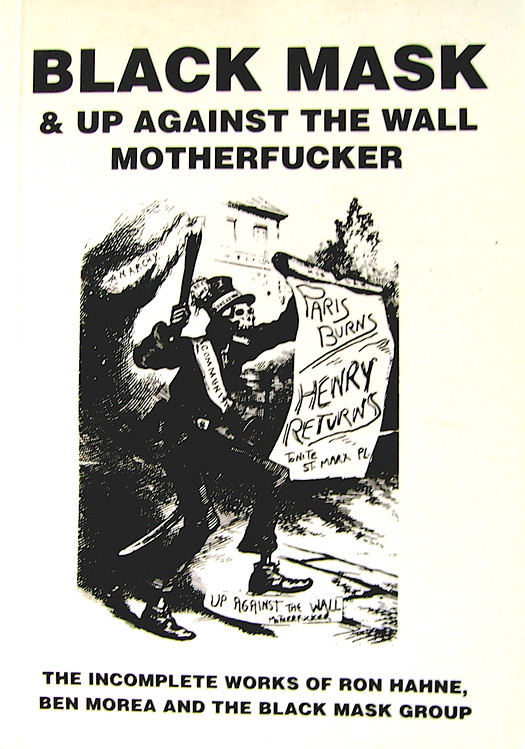Rick Dolphijn, Iris van der Tuin: New Materialism: Interviews & Cartographies (2012–) [EN, TR]
Filed under book | Tags: · cartography, ethics, materialism, metaphysics, philosophy, politics, transversality

“This book is the first monograph on the theme of “new materialism,” an emerging trend in 21st century thought that has already left its mark in such fields as philosophy, cultural theory, feminism, science studies, and the arts. The first part of the book contains elaborate interviews with some of the most prominent new materialist scholars of today: Rosi Braidotti, Manuel DeLanda, Karen Barad, and Quentin Meillassoux. The second part situates the new materialist tradition in contemporary thought by singling out its transversal methodology, its position on sexual differing, and by developing the ethical and political consequences of new materialism.”
Publisher Open Humanities Press, 2012
New Metaphysics series
Creative Commons BY-SA 3.0 license
ISBN 1607852810, 9781607852810
195 pages
Announcement from the series editor (Graham Harman)
HTML, HTML
PDF, PDF (updated on 2016-7-19)
Yeni Materyalizm: Görüşmeler ve Kartografiler (Turkish, trans. Esra Erdoğan, 2019, added on 2020-4-18)
Kathi Weeks: The Problem with Work: Feminism, Marxism, Antiwork Politics, and Postwork Imaginaries (2011)
Filed under book | Tags: · autonomy, basic income, capitalism, critique, feminism, fordism, labour, marxism, politics, postwork, production, productivism, value, work

In The Problem with Work, Kathi Weeks boldly challenges the presupposition that work, or waged labor, is inherently a social and political good. While progressive political movements, including the Marxist and feminist movements, have fought for equal pay, better work conditions, and the recognition of unpaid work as a valued form of labor, even they have tended to accept work as a naturalized or inevitable activity. Weeks argues that in taking work as a given, we have “depoliticized” it, or removed it from the realm of political critique. Employment is now largely privatized, and work-based activism in the United States has atrophied. We have accepted waged work as the primary mechanism for income distribution, as an ethical obligation, and as a means of defining ourselves and others as social and political subjects. Taking up Marxist and feminist critiques, Weeks proposes a postwork society that would allow people to be productive and creative rather than relentlessly bound to the employment relation. Work, she contends, is a legitimate, even crucial, subject for political theory.
Publisher Duke University Press, 2011
a John Hope Franklin Center Book
ISBN 0822351129, 9780822351122
304 pages
Black Mask & Up Against the Wall Motherfucker: The Incomplete Works of Ron Hahne, Ben Morea, and the Black Mask Group (1993)
Filed under book | Tags: · 1960s, anarchism, art, new york, politics

Founded in New York City in the mid-1960s by self-educated ghetto kid and painter Ben Morea, the Black Mask group melded the ideas and inspiration of Dada and the Surrealists, with the anarchism of the Durruti Column from the Spanish Revolution. With a theory and practice that had much in common with their contemporaries the San Francisco Diggers, Dutch Provos, and the French Situationists—who famously excommunicated 3 of the 4 members of the British section of the Situationist International for associating too closely with Black Mask—the group intervened spectacularly in the art, politics and culture of their times. From shutting down the Museum of Modern Art to protesting Wall Street’s bankrolling of war, from battling with Maoists at SDS conferences to defending the Valerie Solanas shooting of Andy Warhol, Black Mask successfully straddled the counterculture and politics of the 60s, and remained the Joker in the pack of both sides of “The Movement.”
By 1968 Black Mask dissolved into “The Family” (popularly known as Up Against The Wall Motherfucker—the name to which they signed their first leaflet), which combined the confrontational theater and tactics of Black Mask with a much more aggressively “street” approach in dealing with the police, and authorities. Dubbed a “street gang with analysis” they were reputedly the only white grouping taken seriously by the Black Panther Party, and influenced everyone from the Weathermen to the “hippy” communal movements.
This volume collects the complete ten issues of the paper Black Mask (produced from 1966-1967 by Ben Morea and Ron Hahne), together with a generous collection of the leaflets, articles, and flyers generated by Black Mask, and UATW/MF, the UATW/MF Magazine, and both the Free Press and Rolling Stone reports on UATW/MF.
By Ben Morea and Ron Hahne
Edited by Jacques Vache Editorial Group, London, UK
Anticopyrighted under the Berne, Baby, Berne convention; any portion maybe produced by any means necessary, as permitted under the Copy-Cat Riot Actions, 1981, 1985, and 1990
ISBN 1873176708
140 pages
via Self Learn Los Angeles
wikipedia
publisher (2011 edition)
google books (2011 edition)
PDF (no OCR)
Comments (3)
